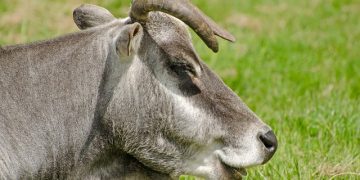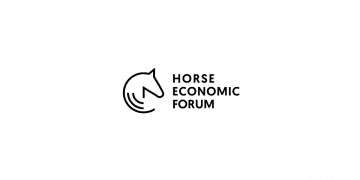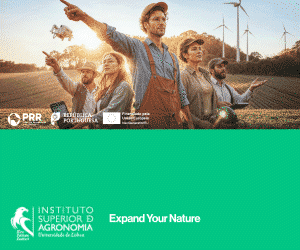A top European science council calling is demanding a “radical reform of the legal framework” that regulates genetically modified organisms (GMOs) in the European Union.
In a strongly worded commentary, the European Academies Science Advisory Council (EASAC) said the current EU regulations are “no longer fit for purpose” and warned of serious ramifications if the rules are not eased to allow new plant breeding techniques to move forward.
“There is a societal cost of not using new genome editing techniques or being slow in adoption,” said Robin Fears, director of EASAC’s Biosciences Program. “We have no time to lose in resolving our shared problems for food and nutrition security.”
The commentary focused on the EU’s global responsibilities and “moral obligations” in regard to addressing climate change, fighting diseases, reducing suffering, supporting innovation and food security in developing nations and meeting its own Green Deal, agricultural policy and bioeconomy objectives.
“Given the escalating, shared problems associated, for example, with climate change, it is vital that EU actions take account of our responsibilities in the global context and that we do not repeat our past mistakes in failing to capitalize on advances in the biosciences,” the commentary noted.
“It must also be appreciated that EU policy decisions have very significant implications elsewhere in the world,” the commentary continued. “In the past, for example, the EU over-regulation of GMOs had negative impact on science and innovation in developing countries who feared for their export markets and who had been inclined to look to the EU to express leadership in research and development.”
The EASAC commentary also identified a number of EU “policy disconnects,” including how the import of GMO food and feed runs “counter to EU aspirations to limit ‘food miles’. Unless the EU response to climate change includes developing climate-resilient agriculture, it can be foreseen that the EU will require to import more food and feed, and an increasing proportion of this is likely to be from the use of new breeding techniques elsewhere in the world.”
The commentary is the latest push in a reform drive that began in 2018 when the European Court of Justice ruled that gene-edited organisms would be subject to the same stringent regulations that now govern GMOs. The ruling provoked an immediate outcry from European scientists, as well as the EU’s Group of Chief Scientific Advisors. The Danish Council of Ethics also urged the EU to revisit its anti-GMO stance and change its regulatory system to focus on individual products rather than the processes used to breed them.
United States Secretary of Agriculture Sonny Perdue similarly rejected the ruling, saying it was not grounded in science and could harm world trade. The International Seed Agency also warned that the current “patchwork” of gene editing regulations would harm global seed production and risk consolidating genome editing technology in the hands of the wealthiest companies and the most valuable commodity crops.
The EASAC commentary endorses and builds on recommendations recently issued by the German National Academy of Sciences Leopoldina, the Union of German Academies of Sciences and Humanities and the German Research Foundation (DFG). That statement, titled “Towards a scientifically justified differentiated regulation of genome edited plants in the EU,” asserted that the “process-based European regulatory approach is no longer justifiable.”
The EASAC and German scientific institutions want the EU to start by amending its genetic engineering legislation to revise the definition of GMOs, exempt genome edited organisms from regulation “if no foreign genetic material is introduced and/or if there is a combination of genetic material that could also result naturally or through traditional breeding methods. Products of new technologies and their use, rather than the technology itself, should be evaluated according to the scientific evidence base,” they said.
They note that such “moderate” changes would reflect the current state of knowledge about GMOS and “also align European legislation with the regulation of some of the EU’s major trading partners in the agricultural sector.”
As the next step, they say, the EU should develop “a fundamentally new legal framework that is detached from the previous, process-based regulatory approach to genetic modification [which] cannot be scientifically justified.” The EU also should facilitate the field trial process for edited crops, engage in “constructive dialogue” with consumers about the realities of various breeding methods and implement labeling rules that identify only products containing foreign genetic material as GMOs.
Additionally, they called on the EU to apply the precautionary principle on a scientific basis and publicly fund research on both genome edited plants and “the apprehensions and concerns about genetic engineering that are widespread in society.”
The proposed revisions would democratize crop development and “help to counter the process of monopolization in the already highly concentrated international markets for new plant varieties and seeds. Only large multinational corporations can afford the current costs and delays caused by European approval processes,” the German statement noted.
The EASAC commentary expanded upon this, noting: “It is also vitally important to learn lessons from history: an inadvertent consequence of EU GMO legislation and the high costs inherent in seeking regulatory approval has increased multi-national company monopoly in the commercial agricultural model.”
The EASAC commentary also urged greater transparency and expanded dialogue on all sides around the issue of genetic engineering.
“Public discussion about GMO crops tended to become a proxy for other much-needed discussion about food security and safety, farming systems, fair competition, social justice, the economic power of multi-national companies and the apparent conflict between intellectual property protection and benefit sharing. If the differing public values are to be better understood as part of attempts to reconcile them and if we wish to avoid repeating the same mistakes in public engagement on genome editing, then the multiple determinants of each controversy need to be made more transparent.”
BY JOAN CONROW
O artigo foi publicado originalmente em Cornell Alliance for Science.























































Discussão sobre este post